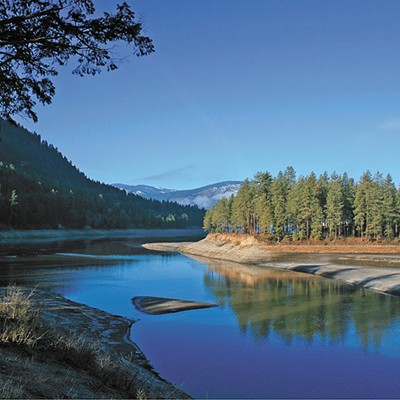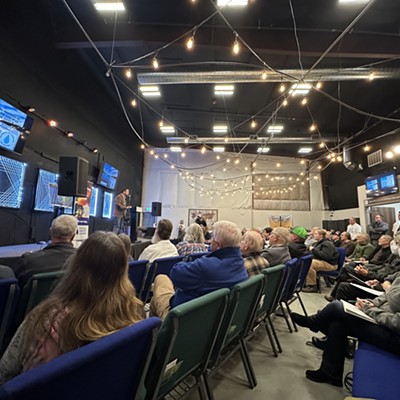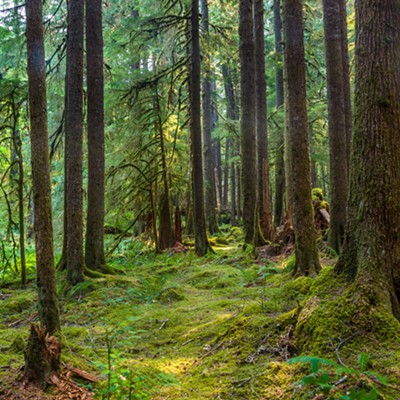From PCBs in the Spokane River to “fracking” for natural gas in Idaho, threats to the environment in the Inland Northwest have been big news as of late. Almost as big have been the stories of communities trying to use existing environmental laws to protect themselves and the natural environment. Unfortunately for all of us, those efforts have mostly come up short.
Prior to the passage of federal environmental laws as we know them, protection of the environment was merely a byproduct of protecting your own property. For example, if your upstream neighbor dumped paint into a stream used for watering your livestock, he would then become liable to you for damage to your property, which would include the replacement value of your livestock and trough water. Damage to your property therefore required the payment of money to compensate you for that damage. Protection of the stream itself was entirely collateral.
While many environmental groups argue that the expansion of federal environmental laws in the 1970s — like the Clean Water Act — changed all of that, a growing number of people have begun to argue that those laws actually changed very little. Instead of recognizing that nature and ecosystems possess rights and interests of their own (and constructing a legal system that would defend those innate interests), laws like the Clean Water Act continued to treat nature and ecosystems as property — as common property.
This explains why the Clean Water Act works the way it does. It establishes the goal of making rivers and streams “fishable, swimmable, and drinkable” — interests focused solely on protecting our collective ability to use the commonly owned “resource.” Next, it only allows those parties suffering an interference with their use of the waterway to enforce the Act (other than the government itself); and finally, monetary damages are calculated in a way that bears no relationship to the actual damage. And, if damages are ordered by the court, monies are paid directly to the federal treasury, and not to restore the damaged ecosystem. In fact, the only way that monies are applied to the watershed is if the parties agree to privately negotiated settlements — payouts that ironically make those monies tax deductible for the corporate defendants in most situations.
If nature is merely common property belonging to everyone, this system makes perfect sense, as the end-goal is to protect our collective use of that property from someone interfering with it. But if the goal is to protect and strengthen the river ecosystem itself, our much-touted environmental laws fall short.
And it gets worse. The permitting systems established by these laws “legalize” harms by authorizing certain activities to occur. Under the protection of the federal environmental laws, mining companies blow the tops off mountains in West Virginia to get at coal, water bottlers siphon off hundreds of thousands of gallons of water daily from aquifers, and waste corporations dump toxic sewage sludge on farmland. And it’s all been made “legal” by state and federal laws.
In essence, we’ve attempted to build an environmental movement by regulating how common property is used, rather than envisioning a system in which ecosystems have independent interests of their own — interests that people and communities can defend on their behalf, and legal systems that require polluters to restore damaged ecosystems.
While it may sound extraordinary, two dozen rural, mostly conservative municipalities across the U.S. have adopted some of their own laws recognizing that ecosystems possess the right to exist and flourish. In the City of Spokane, a movement has arisen to drive a Community Bill of Rights into law, offering the highest legal protections to the Spokane River and aquifer.
In 2008, the people of Ecuador overwhelmingly ratified the world’s first national constitution recognizing that ecosystems and natural communities have the rights to exist, regenerate, and evolve; and that indigenous peoples and Ecuadorians alike have the authority to act on their behalf to defend those rights.
We’ve come a long way in this country towards expanding rights for people. In the 1800s, both slaves and women were treated as property under the law, with the result that the crime of murdering a slave or raping a woman didn’t exist. Both were compensable only as property crimes, with damages due to the slaveowner or the husband. With global environmental collapse on the horizon, it’s past time to apply those lessons to give birth to a new civil rights movement.
As Alberto Acosta, former Ecuadorian oil minister and president of the constitutional assembly once declared, the law treats “nature as a slave.” Like the Abolitionists and Suffragists, we too must recognize how the current system works, and then move boldly forward to change it.
The planet is waiting.
Thomas Linzey is a Spokane resident and lawyer with the Community Environmental Legal Defense Fund, a nonprofit environmental law firm.





















